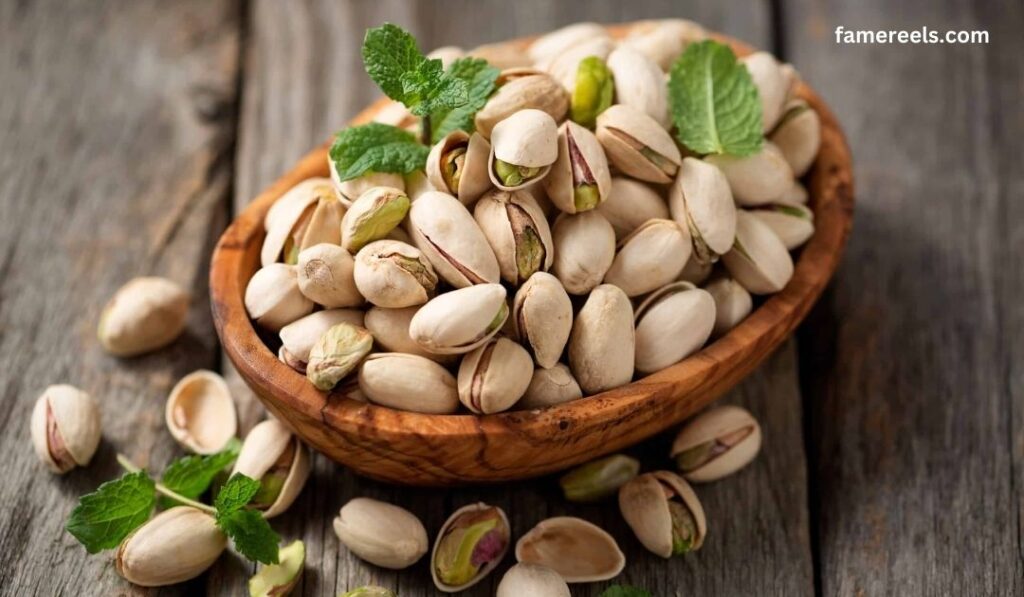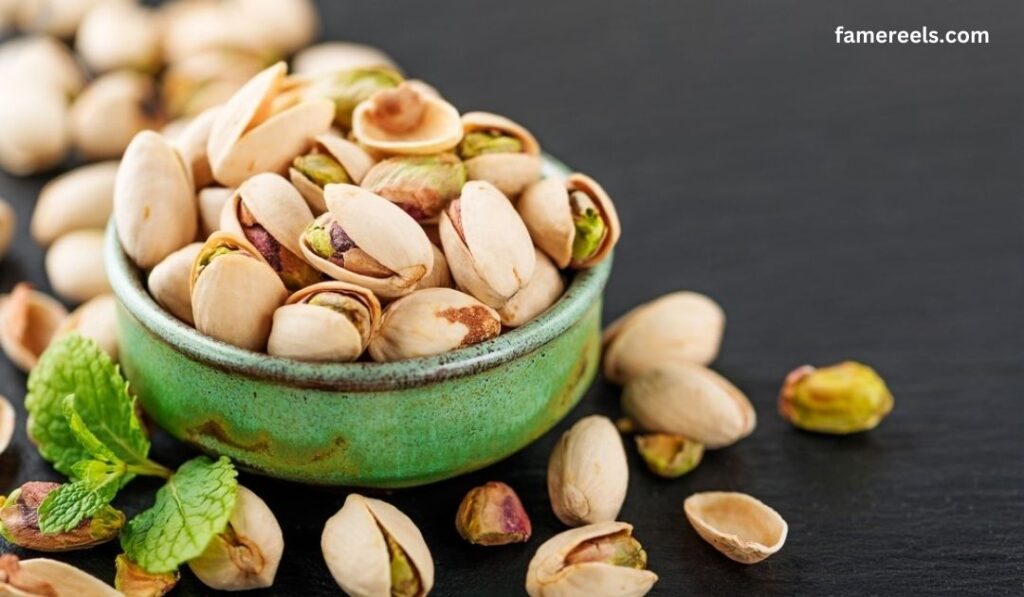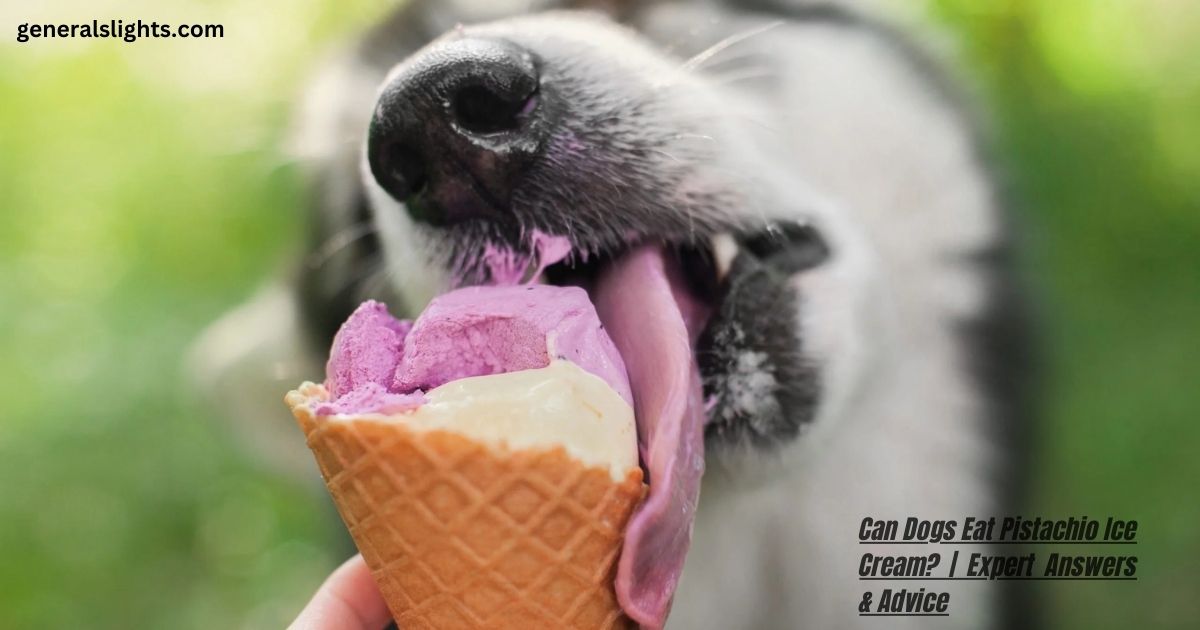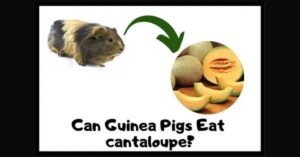Pistachio ice cream contains pistachios and dairy. Most dogs shouldn’t eat it due to potential health risks.
Have you ever wondered if your furry friend can share your ice cream? Pistachio ice cream might look tempting, but it comes with risks. Before you treat your pup, let’s explore the facts. Understanding what’s safe for dogs can keep them happy and healthy!
Dogs can enjoy certain frozen treats, but pistachio ice cream is not one of them. The pistachio nuts pose a choking hazard and can upset your dog’s stomach. Additionally, many ice creams contain sugar and dairy, which dogs may struggle to digest. Always choose pet-safe options when treating your canine companion!
What are Pistachios?
Pistachios are small, green nuts that grow inside a hard shell. They belong to the cashew family and are known for their rich flavor and crunchy texture. These nuts are delicious and packed with nutrients, making them a popular snack worldwide.

Rich in protein, fiber, and healthy fats, pistachios offer various health benefits. They can support heart health and help with weight management. Their unique taste makes them a favorite ingredient in desserts and savory dishes.
Key Facts About Pistachios:
- Nutrient-rich: High in protein, fiber, and healthy fats.
- Heart Health: This can help lower cholesterol levels and improve heart function.
- Antioxidants: Contains compounds that combat oxidative stress.
- Weight Management: Their fiber content promotes satiety, helping with weight control.
- Versatile Use: Enjoyed as snacks, in salads, or as ingredients in desserts.
- Low Glycemic Index: This may be suitable for people managing blood sugar levels.
- Rich Flavor: Known for their distinct taste and creamy texture.
- Culinary Delight: Used in both sweet and savory dishes across various cuisines.
Understanding the Risks of Pistachio Ice Cream for Dogs
Pistachio ice cream may seem like a delightful treat to share with your dog, but it’s fraught with risks. Many dogs are lactose intolerant, which means they struggle to digest dairy products. Consuming ice cream can lead to gastrointestinal issues, such as diarrhea and vomiting. Additionally, pistachios can pose a choking hazard and lead to serious health problems.
The high sugar content in many ice creams is another concern. Excessive sugar can contribute to obesity and diabetes in dogs. Furthermore, the fat content may lead to pancreatitis, a painful condition that requires immediate veterinary attention. Understanding these risks is crucial for keeping your dog safe and healthy.
Choking Hazards of Pistachios
Pistachios can pose significant choking hazards for dogs. The hard shells can easily get lodged in a dog’s throat, leading to panic and potential injury. Even without the shells, the nuts themselves can obstruct airways. Always supervise your dog during treat time to prevent choking incidents. Opting for safer, dog-friendly treats can help avoid this risk.
Lactose Intolerance in Dogs
Many dogs are lactose intolerant, meaning they cannot properly digest lactose found in dairy products. Feeding your dog ice cream can lead to discomfort and digestive upset. Common symptoms include bloating, diarrhea, and excessive gas. If you notice these signs after giving your dog dairy, it’s best to avoid it in the future. Always choose treats that are specifically formulated for dogs.
Health Risks Associated with Sugar
The high sugar content in pistachio ice cream can lead to several health problems in dogs. Regular consumption of sugary treats can contribute to obesity, which poses numerous health risks. Moreover, sugar can lead to dental issues and may even increase the risk of diabetes. Opt for low-sugar or sugar-free alternatives to keep your dog healthy. Reading ingredient labels is essential for ensuring your dog’s safety.
Alternatives to Pistachio Ice Cream
Instead of pistachio ice cream, consider dog-friendly frozen treats. Many brands offer healthy options made specifically for canine consumption. These treats are often lower in sugar and free from harmful additives. You can also make homemade frozen treats using dog-safe ingredients. This way, you can ensure your dog enjoys a tasty snack without the associated risks.
Six Reasons Why Pistachio Ice Cream is Off-Limits for Dogs
Pistachio ice cream poses several risks for dogs, making it a definite no-go. The combination of sugar, dairy, and pistachios can lead to digestive issues and allergic reactions. Keeping your pup safe means steering clear of this sweet treat.

Takeaways:
- Choking Hazard: Whole pistachios can block your dog’s airways.
- Lactose Intolerance: Many dogs struggle to digest dairy.
- High Sugar Content: Excess sugar can lead to obesity and diabetes.
- Allergic Reactions: Some dogs may have allergies to nuts.
- Unhealthy Fats: Can contribute to weight gain and pancreatitis.
- Toxic Ingredients: Ice creams often contain additives harmful to dogs.
What the AKC Says about Feeding Dogs Pistachios
The American Kennel Club (AKC) advises against feeding dogs pistachios. Although a small amount may not cause immediate harm, the potential risks outweigh any benefits. Dogs can experience various health issues due to this nut.
Feeding your dog safe, nutritious treats is crucial for their well-being. Always consult your veterinarian if you’re unsure about new foods. This ensures you’re making the best choices for your pet’s health.
What Happens If A Dog Eats Pistachios?
If a dog accidentally consumes pistachios, the first step is to monitor them closely. Watch for signs of distress, such as vomiting or diarrhea. Quick action can help prevent serious complications.
In severe cases, dogs might experience more serious issues like pancreatitis. If symptoms persist or worsen, it’s essential to contact your vet. Keeping your dog away from pistachios helps avoid these health risks altogether.
Signs of Distress
Dogs may show signs of distress after eating pistachios. Symptoms can include vomiting, diarrhea, and abdominal pain. These reactions can indicate a digestive upset or an allergic reaction. Keep an eye on your pet for any unusual behavior. Quick action is vital if you notice these signs.
Choking Hazards
Pistachios can pose choking hazards for dogs. The hard shells may get lodged in their throat, causing panic and discomfort. Always supervise your dog when they’re eating any treats. If a dog shows signs of choking, immediate veterinary help is crucial. Prevention is key to keeping your dog safe.
Allergic Reactions
Some dogs may have allergies to pistachios. Reactions can range from mild itching to severe gastrointestinal distress. If your dog shows signs of an allergy, such as swelling or hives, seek veterinary advice. Always introduce new foods slowly and cautiously. Knowing your dog’s allergies helps prevent incidents.
Pancreatitis Risk
Consuming fatty foods like pistachios can lead to pancreatitis in dogs. This condition can cause severe abdominal pain and require immediate treatment. Symptoms include vomiting, lethargy, and loss of appetite. Early detection is essential for recovery. Avoiding high-fat foods helps maintain your dog’s health.
Vet Consultation
If your dog consumes pistachios, consult your veterinarian for guidance. They can provide tailored advice based on your dog’s health. It’s crucial to know what to watch for in terms of symptoms. A vet’s expertise can help address any health concerns. Keeping your dog’s health a priority ensures their well-being.
My Dog Ate Pistachios/Pistachio Shells: What to Do
If your dog ate pistachios or their shells, stay calm and assess the situation. Monitor your pet for any signs of distress, such as vomiting, diarrhea, or lethargy. It’s important to contact your veterinarian for advice, especially if your dog has consumed a large quantity. Early intervention can help prevent serious health issues.

While some dogs may tolerate a small number of pistachios, the shells pose a greater risk. They can cause choking or intestinal blockages. Always keep an eye on your dog after an incident like this. Providing safe treats and avoiding harmful foods is essential for their health.
Determining a Safe Quantity of Pistachios for Your Dog
Determining a safe quantity of pistachios for your dog can be tricky. Generally, it’s best to avoid giving pistachios at all due to their potential risks. If you do decide to give a small amount, consult your vet first to ensure it’s safe for your pet. Always prioritize your dog’s health over sharing human snacks.
A few pistachios might not harm a large dog, but smaller breeds are more vulnerable. Each dog’s tolerance varies, so it’s crucial to observe them closely. Providing safe alternatives is often a better choice. Ensuring your dog stays healthy means choosing appropriate treats.
| Safe Quantity for Dogs | Risk Factors | Signs of Distress | Recommended Alternatives | Consultation with Vet |
| 1-2 pistachios (large dogs only) | Choking hazard from shells | Vomiting, diarrhea, lethargy | Carrots, apples, sweet potatoes | Always consult before giving nuts |
| Smaller breeds: Avoid altogether | High fat can cause pancreatitis | Abdominal pain, bloating | Dog-friendly ice creams | Tailored advice for each dog |
| Monitor for reactions | Allergic reactions possible | Swelling, hives | Commercial dog treats | Ensure proper portioning |
| Observe behavior after consumption | Intestinal blockage risk | Signs of distress | Peanut butter (xylitol-free) | Discuss dietary needs |
Can Dogs Eat Pistachio Pudding?
Pistachio pudding is another treat to avoid for dogs. It often contains sugar, dairy, and artificial flavors, all of which can be harmful. Many dogs are lactose intolerant and can’t digest dairy well. Stick to dog-safe treats to keep your pup happy and healthy.
If your dog consumes pistachio pudding, monitor them closely for any adverse reactions. Symptoms may include stomach upset, vomiting, or diarrhea. Consulting your vet is crucial if you notice any concerning signs. Keeping harmful foods away from your dog is the best preventive measure.
Can Dogs Eat Ice Cream?
Most ice cream isn’t safe for dogs due to high sugar and dairy content. Many dogs struggle to digest lactose, leading to stomach issues. If you want to treat your pup, consider dog-friendly ice creams made specifically for them. Always check the ingredients to ensure the safety of your furry friend.
Can Dogs Eat Pistachio Spread?
Pistachio spread is also off-limits for dogs. Similar to pistachio pudding, it usually contains sugar and potentially harmful additives. Additionally, the high-fat content can lead to digestive upset or pancreatitis. Stick to safe spreads designed for dogs to avoid any health risks.
What Nuts Can Dogs Eat?
While many nuts are unhealthy for dogs, a few options are safe in moderation. Peanuts and cashews, for example, can be safe as long as they’re unsalted and free of additives. Always monitor your dog for any reactions when introducing new foods. Ensuring your pet’s diet is safe and nutritious keeps them healthy and happy.
| Safe Nuts for Dogs | Unsafe Nuts for Dogs | Preparation Tips | Signs of Allergic Reaction | Recommended Serving Size |
| Peanuts (unsalted) | Macadamia nuts | Always remove shells | Swelling, hives | 1-2 nuts occasionally |
| Cashews (unsalted) | Walnuts | Serve in moderation | Vomiting, diarrhea | 1-2 nuts occasionally |
| Almonds (in small amounts) | Pistachios | Avoid flavored varieties | Lethargy | 1-2 nuts occasionally |
| Hazelnuts (unsalted) | Pecans | Avoid high-fat options | Difficulty breathing | 1-2 nuts occasionally |
| Sunflower seeds (in moderation) | Chestnuts | Serve plain | Scratching, itchiness | 1-2 seeds occasionally |
Takeaways on Can Dogs Eat Pistachio Ice Cream?
- Avoid Sharing: Always refrain from giving your dog pistachio ice cream. It contains ingredients that can upset their stomach and cause health issues.
- Choking Hazard: The shells of pistachios pose a serious choking risk for dogs. Even without the shells, the nuts themselves can block airways.
- Dairy Concerns: Most dogs are lactose intolerant, making dairy-based ice creams problematic. Ice cream can lead to digestive upset, including diarrhea and vomiting.
- High Sugar Content: Pistachio ice cream often contains high levels of sugar. This excess sugar can contribute to obesity and diabetes in dogs.
- Potential Allergies: Some dogs may have allergies to nuts like pistachios. Symptoms can include itching, swelling, or gastrointestinal issues.
- Fat Content Risks: The high-fat content in pistachio ice cream can lead to pancreatitis. This condition is painful and may require veterinary treatment.
- Safe Treat Alternatives: Instead of pistachio ice cream, opt for dog-friendly frozen treats. Many brands offer safe options made specifically for pets.
- Monitor for Symptoms: If your dog accidentally eats pistachio ice cream, watch for signs of distress. Quick action can prevent serious complications.
- Vet Consultation: Always consult your veterinarian if you’re unsure about feeding your dog certain foods. They can provide tailored advice for your pet’s health.
- Educate Yourself: Understanding which foods are harmful helps protect your dog. Knowledge about safe treats keeps your furry friend happy and healthy.
- Introduce Foods Slowly: If you want to explore new treats, introduce them gradually. This way, you can monitor for any adverse reactions.
- Prioritize Dog Safety: Your dog’s well-being should always come first when it comes to food choices. Keep harmful foods out of reach to ensure their health.
FAQs
Can dogs eat pistachio ice cream?
No, dogs should not eat pistachio ice cream. It contains dairy and sugar, which can upset their stomach.
What are the risks of pistachio nuts for dogs?
Pistachio nuts pose choking hazards and may cause gastrointestinal issues. They can also lead to pancreatitis due to their high fat content.
What should I do if my dog eats pistachio ice cream?
If your dog eats pistachio ice cream, monitor them for signs of distress. Contact your veterinarian if you notice vomiting or diarrhea.
Are there safe alternatives to ice cream for dogs?
Yes, there are many dog-friendly frozen treats available. You can also make homemade options using safe ingredients like peanut butter.
What nuts are safe for dogs to eat?
Peanuts and cashews are generally safe for dogs in moderation. Always avoid giving them nuts that are toxic, like macadamia nuts.
Conclusion
Pistachio ice cream is not a safe treat for dogs. Ingredients like dairy and sugar can upset their stomachs and lead to serious health issues. Dogs may also choke on pistachio shells, which pose a significant risk. Furthermore, the high fat content can cause pancreatitis, requiring veterinary care. Always prioritize your dog’s safety by avoiding harmful snacks.
Instead of sharing pistachio ice cream, opt for dog-friendly alternatives. Many frozen treats are specially formulated for canine health and enjoyment. Homemade options using safe ingredients are also great choices. By selecting the right treats, you keep your furry friend happy and healthy. Always consult your veterinarian for the best advice on your dog’s diet.
- Also Read Must:
- Pure Harmony Dog Food: Honest Review
- Why Boxers are Considered the Worst Dogs | Dogisty

Emerson is an expert in the world of pets, specializing in understanding diverse breeds, nutrition, and health. His deep knowledge ensures your pets receive the best care, from balanced diets to top-notch health advice, keeping them at their happiest and healthiest.











